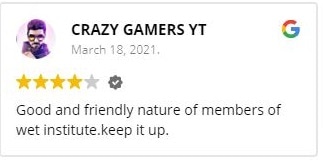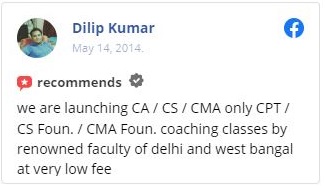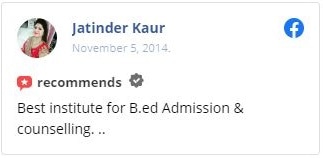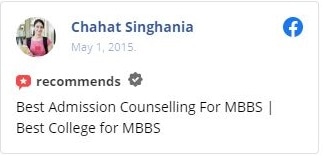B.Ed. (Bachelor of Education) Admission: Top Universities, Admission Process, Eligibility Criteria, Fees, Duration, Syllabus, Career Opportunities, and FAQs
B.Ed (Bachelor of Education) Overview at a Top University
The Bachelor of Education (B.Ed) program at this top university is designed to prepare future educators with the skills, knowledge, and competencies required for effective teaching in diverse educational settings. This program is a vital stepping stone for those aspiring to excel in the field of education.
1. Program Duration
The B.Ed program typically spans two years, divided into four semesters, allowing for comprehensive coverage of educational theories and practices.
2. Curriculum
The curriculum includes essential subjects such as Educational Psychology, Pedagogy, Curriculum Development, and Assessment Techniques. Students can choose electives that align with their interests, enhancing their expertise in specific areas of education.
3. Teaching Methodologies
Students are exposed to various teaching methodologies, including lecture-based learning, interactive sessions, and project-based approaches. This variety helps future educators develop effective strategies tailored to different learning environments.
4. Practical Training
A core component of the B.Ed program is practical training through teaching internships in affiliated schools. This hands-on experience is crucial for honing classroom management skills and applying theoretical knowledge in real-world scenarios.
5. Internship Opportunities
Internships provide invaluable exposure to actual teaching situations, enabling students to understand student assessment, lesson planning, and classroom dynamics.
6. Skill Development
The B.Ed program emphasizes skill development, focusing on essential skills such as communication, critical thinking, and leadership. Workshops and training sessions led by experienced faculty enhance these competencies.
7. Career Prospects
Graduates of the B.Ed program can pursue careers as school teachers, educational consultants, curriculum developers, and educational administrators. The degree also serves as a foundation for advanced studies, such as Master of Education (M.Ed) programs.
B.Ed (Bachelor of Education) Admission Eligibility Criteria
To apply for the Bachelor of Education (B.Ed) program, candidates must meet specific eligibility criteria. These requirements ensure that applicants are adequately prepared for the rigors of teacher education. Below are the key criteria:
1. Educational Qualifications
- Candidates must have completed a Bachelor’s degree in any discipline from a recognized university.
- The minimum aggregate marks typically required range from 50% to 55%, depending on the university’s guidelines.
2. Age Limit
- Some universities may have an age limit for B.Ed admissions, generally ranging between 19 to 35 years. However, this can vary, so it’s essential to check specific university regulations.
3. Subject Eligibility
- Candidates should have studied relevant subjects during their undergraduate program. For instance, those aiming to teach in specific subject areas (like Mathematics or Science) may need to have majored in those subjects.
4. Entrance Exam
- Many top universities conduct an entrance exam for B.Ed admissions. Candidates must qualify in this exam to secure a seat in the program.
- The exam often tests knowledge in areas such as General Knowledge, Teaching Aptitude, and Educational Psychology.
5. Personal Interview
- Some institutions may require candidates to attend a personal interview as part of the selection process. This interview assesses the candidate’s motivation and suitability for the teaching profession.
6. Reserved Categories
- Relaxation in eligibility criteria may apply for candidates from reserved categories (SC/ST/OBC) as per government regulations.
7. Documentation
- Candidates must provide necessary documentation, including academic transcripts, identity proof, and any other documents specified by the university during the application process.
B.Ed Admission Process (2025-26) from Top Universities
The admission process for the Bachelor of Education (B.Ed.) program at top universities typically involves several key steps. Below is a general outline of the process for the 2025-26 academic year:
1. Research and Selection
- Candidates should begin by researching top universities offering B.Ed. programs. Factors to consider include curriculum, faculty, infrastructure, and placement opportunities.
2. Eligibility Check
- Ensure you meet the eligibility criteria, including educational qualifications, minimum aggregate marks, and age limits. This may vary by university.
3. Entrance Examination
- Most top universities conduct an entrance exam for B.Ed. admissions. Candidates need to register for this exam, which typically tests areas like General Knowledge, Teaching Aptitude, and Educational Psychology.
- Prepare for the entrance exam well in advance, utilizing study materials and past papers.
4. Application Form
- After qualifying for the entrance exam, candidates must fill out the application form for their chosen university. This can often be done online through the university’s official website.
- Ensure all required documents, such as academic transcripts and identity proof, are ready for submission.
5. Payment of Application Fees
- Pay the required application fee, which varies by institution. Keep the payment receipt for future reference.
6. Merit List and Counseling
- Based on entrance exam scores, universities will publish a merit list. Shortlisted candidates will be invited for a counseling session.
- During counseling, candidates can choose their preferred colleges or specializations based on their ranks.
7. Document Verification
- Candidates must present their original documents for verification during the counseling process. This includes academic certificates, ID proof, and any reservation category documents, if applicable.
8. Seat Allotment and Admission Confirmation
- Once seats are allotted, candidates must confirm their admission by paying the required fees and completing any additional documentation as instructed by the university.
B.Ed Admission Process (2025-26) from Top Universities: Fees and Duration
The admission process for the Bachelor of Education (B.Ed.) program varies by university but generally includes the following steps:
1. Eligibility Check
- Confirm that you meet the eligibility criteria, which typically include a Bachelor’s degree with a minimum aggregate of 50-55%, and any specific subject requirements.
2. Entrance Examination
- Most top universities conduct an entrance exam for B.Ed. admissions. Candidates need to register and prepare for this examination, which assesses knowledge in areas like General Knowledge, Teaching Aptitude, and Educational Psychology.
3. Application Form
- After successfully qualifying for the entrance exam, candidates must fill out the application form available on the university’s official website. Ensure that all required documents are prepared for submission.
4. Payment of Application Fees
- The application fee varies by institution, generally ranging from ₹500 to ₹2000. Retain the payment receipt for future reference.
5. Merit List and Counseling
- Following the entrance exam, universities will publish a merit list. Shortlisted candidates will be invited for a counseling session where they can select their preferred colleges or specializations based on their ranks.
6. Document Verification
- Candidates must present their original documents for verification during the counseling process. Documents typically required include academic certificates, identity proof, and reservation category documents, if applicable.
7. Fees Structure
- The tuition fees for the B.Ed. program at top universities usually ranges from ₹30,000 to ₹1,00,000 per year, depending on the institution’s reputation and facilities. Additional costs may include:
- Registration fees
- Examination fees
- Study materials
9. Duration
- The B.Ed. program typically has a duration of two years, divided into four semesters. Some universities may offer a one-year program, depending on their specific structure and curriculum.
B.Ed from Top Universities: Scope and Career Opportunities
The Bachelor of Education (B.Ed.) program equips graduates with essential skills and knowledge for a successful career in education.
1. Teaching Opportunities
- School Teacher: Graduates can become teachers in primary, secondary, and higher secondary schools, teaching various subjects based on their specialization.
- Special Education Teacher: B.Ed graduates can work with children who have special needs, tailoring their teaching methods to accommodate diverse learning styles.
2. Educational Administration
- School Administrator: Opportunities exist for roles such as principals, vice principals, or education coordinators, where graduates can manage school operations and curriculum implementation.
- Education Consultant: B.Ed graduates can provide consulting services to schools or educational organizations, helping to improve teaching strategies and curriculum development.
3. Higher Education
- Pursuing M.Ed. or Other Specializations: Many B.Ed. graduates opt for further studies, such as a Master of Education (M.Ed.), which opens doors to advanced teaching roles, research, and higher administrative positions in education.
4. Corporate Sector
- Corporate Trainer: B.Ed graduates can transition into the corporate sector, providing training and development programs for employees, focusing on skill enhancement and professional growth.
- Content Developer: Opportunities exist in educational technology companies for roles in developing e-learning content, educational software, and digital resources.
5. Government and NGO Roles
- Education Officer: B.Ed graduates can work with government education departments or NGOs focused on improving educational access and quality in underprivileged areas.
- Community Educator: Opportunities to work in community outreach programs, promoting education and literacy among marginalized populations.
6. Online Education
- Online Tutor: With the rise of online education platforms, B.Ed graduates can teach remotely, offering personalized tutoring services in various subjects.
What's Next After B.Ed Course ?
After B.Ed, a candidate can apply for TGT (Trained Graduate Teacher). And if the Student have masters degree they can apply for PGT (Post Graduate Teacher).
Student who want to get a master degree in Education to boost their career can apply for M.Ed Admission 2024 (Master of Education).






























